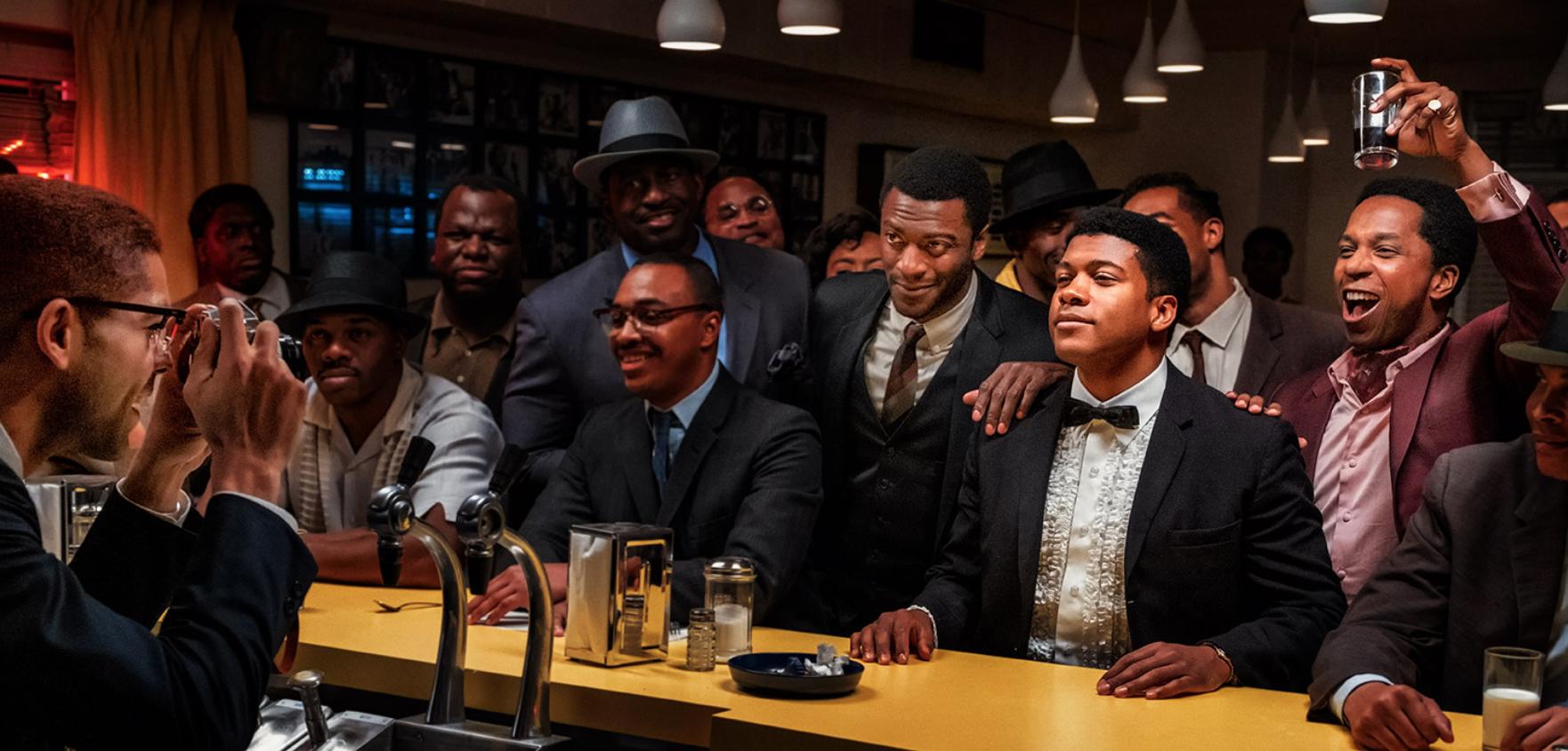What to Watch Verdict
Regina King's directorial debut is a vibrant and beautifully acted drama that fleshes out the lives of four of Black history's greatest icons.
Pros
- +
Regina King is remarkably confident behind the camera.
- +
All four leads are stellar.
- +
The story avoids dry debates and talking-points in favor of lived-in relationships.
Cons
- -
The movie doesn't always escape the stagey nature of its source material.
Several prominent actors are making their directorial debuts this year, but the most hotly hyped title of the bunch is One Night in Miami, directed by Regina King. A year on from her Oscar-winning turn in If Beale Street Could Talk and fresh off her Emmy nomination for Watchmen, one of America’s most celebrated character actors is now ready to dominate Hollywood behind the camera. If this film is anything to go by, as well as those raves out of Venice, then she has an impeccable career as a filmmaker ahead of her.
Based on the play by Kemp Powers (who has adapted his own work for the big screen), One Night in Miami takes its narrative from history. On February 25, 1964, the world heavyweight champion boxer Sonny Liston (Aaron D. Alexander) took on the hot young rising star Cassius Clay (Eli Goree). Despite his record, Sonny lost, and Clay became legendary. That night, Clay met up with NFL record-breaker Jim Brown (Aldis Hodge), the so-called inventor of soul music Sam Cooke (Leslie Odom Jr.), and activist Malcolm X (Kingsley Ben-Adir). King and Powers imagine what happened on that night of icons meeting in celebration and contemplation, an evening where each of them is standing on the precipice of change.
Adapting plays for the cinema is a tricky task, one that has tripped up some of the best directors. It’s all-too-easy to get stuck in the stagey aspects of the source material, especially when the story in question features four extremely famous figures who carry the weight of history on their shoulders. King has taken on the unenviable job of turning this hugely intriguing concept into something of real heft without losing its central humanity, and she accomplishes it with such ease that you’d think she’d been directing films for years. The camera slyly navigates the cramped hotel room where most of the action happens, finding the energy without feeling stagnant. King’s savvy style shows its hand in moments of flair, such as when the camera stays with Jim as he hides out in the bathroom during a tense fight with the others, or how Malcolm’s bodyguards stand dutifully by the hotel door, listening to history unfold behind them with curiosity.
This is a meeting of icons and King is keenly aware of the power of iconography, although she smartly uses it sparingly, such as an overhead shot of the Liston-Clay fight that echoes the famous photograph of the rematch that has yet to come. All four of these men live with the force of those responsibilities and the precarity of that makes up the meat of their fascinating conversations: Malcolm wants Sam to be more publicly vocal but Sam sees real value in appealing to white audiences; Cassius is ready to convert to the Nation of Islam but his friends are wearier about the prospect; Jim lives as if he’s seen it all but remains torn between duty and ambition. All are bound together by greatness, legacy, and the endless reminders that, no matter how accomplished they are or will be, racism will forever impede them, or seek to outright destroy them. An opening scene where Jim has a seemingly sweet encounter with a kindly family friend before he jovially tells him that he doesn’t allow N-words in his house hits the viewer like a punch to the jaw.
What could have been dry debates and talking points, sparks with life thanks to a quartet of impeccable performances. Aldis Hodge, shines as Jim Brown, Leslie Odom Jr. brings the right mix of swagger and seething to Sam Cooke, and Eli Goree brings the cocky charm to Clay without overplaying it into parody. The standout, however, is Kingsley Ben-Adir as Malcolm X. We see the orator and politician but also the quiet family man who jokes around with his friends. He's sharp and not afraid to push everyone's buttons, even as he deals with his own doubts about the Nation of Islam. He is both the man and the symbol. King gives each actor room to breathe and have their moment in the spotlight, but the best scenes are those interactions. We get a real glimpse into the lived-in nature of these partnerships. Cassius talks to Malcolm in ways he wouldn’t with the others, while Sam is able to needle at Malcolm with enough seriousness and joviality in ways that only friends can pull off. These are years-long bonds on show through hefty socio-political discussions, and it’s a testament to both King and Powers that these dynamics are as magnetic and authentic as they are.
While One Night in Miami may not always cast off its stagey origins, the result is something so vibrant and genuinely enjoyable that the chances are you won't care about its minor faults. It invites you in, asks you to listen, and lets its weighty questions linger for you to ponder.
The latest updates, reviews and unmissable series to watch and more!
Kayleigh is a pop culture writer and critic based in Dundee, Scotland. Her work can be found on Pajiba, IGN, Uproxx, RogerEbert.com, SlashFilm, and WhatToWatch, among other places. She's also the creator of the newsletter The Gossip Reading Club.


